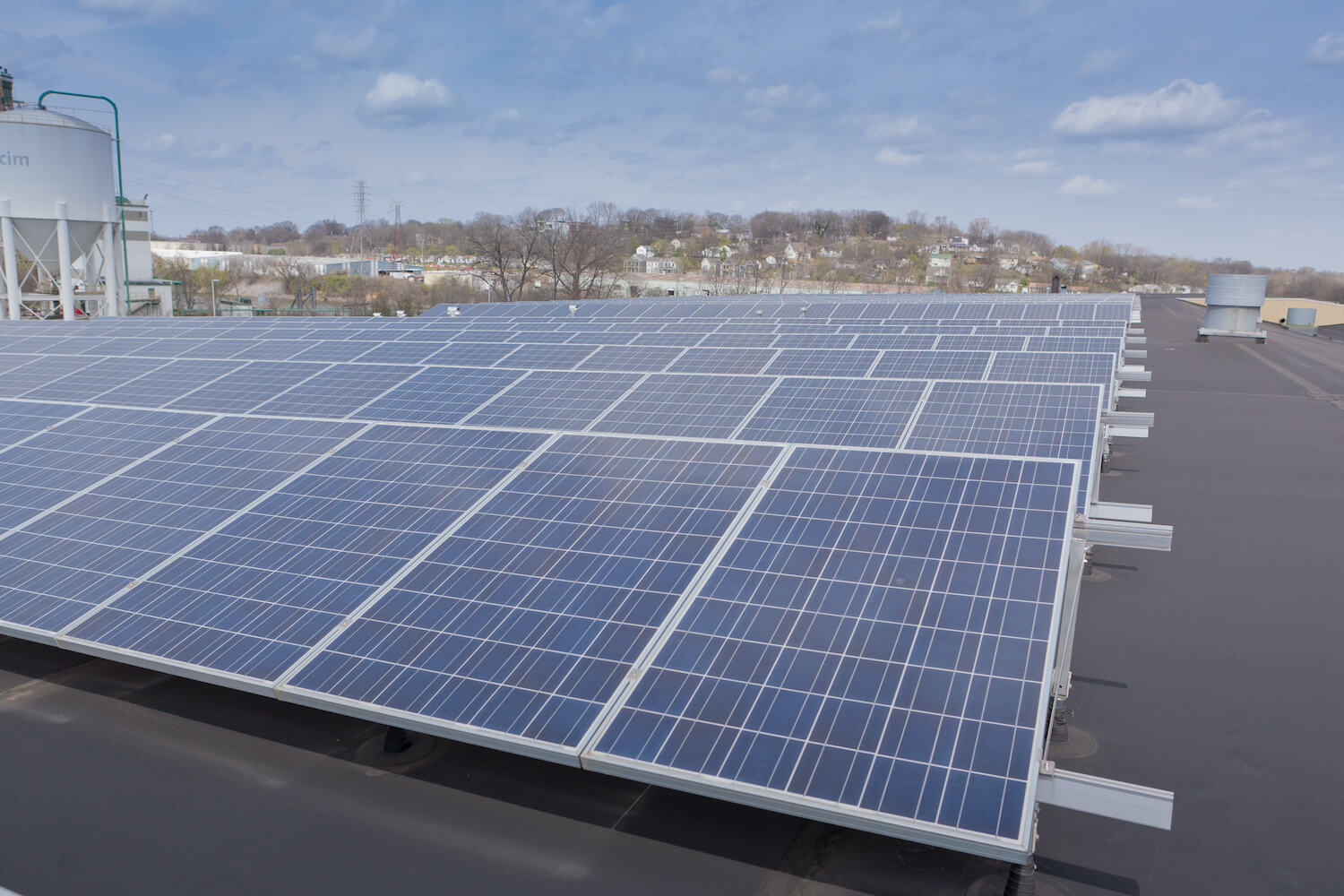Commercial roofs protect buildings from weather and house important building equipment, but many people don’t know that roofs can also play a big role in making a building more energy efficient. With the right kind of roof, building owners can better insulate their building, improving energy efficiency and saving money each month on electricity bills.
Here are a few common questions about energy efficiency and roofing:
What roofing material is most efficient?
The cardinal rule of roof energy efficiency is to use a lighter-colored roofing material. A white or light-colored roof will reflect the sun away from a roof, making the building easier to cool in the summer.
The most efficient roofing material will vary from climate to climate but many different kinds of material can be painted white, including membranes and rubber that are commonly used on commercial roofs.
Are metal roofs efficient?
Metal is one of the most efficient roofing materials. The reflective material can help building owners save up to 40 percent on energy costs. Cool metal roofing uses a highly reflective coating to extend these energy savings even further. These materials are ENERGY STAR® rated for their superior energy efficiency capabilities.
Metal roofs also seal in temperatures excellently. Because metal is more durable than other materials, it protects the insulation that lies beneath it. This makes insulation last longer and perform better than with other types of roofing material.
What roofs qualify for a tax credit?
Residential home improvements that include an energy efficiency element can usually qualify for a tax credit. Similar energy efficiency tax credits for commercial buildings expired in 2017.
The only tax credit now available for commercial roofs is through a general equipment deduction made available through the Tax Cuts and Jobs Act, which passed in 2017. The particular type of roofing material doesn’t matter for this tax cut, and building improvements up to $1 million may be covered.
Will a new roof save energy?
The potential for a new roof to save energy depends on a number of factors, but it’s likely that a new roof will be able to deliver some energy savings. To maximize the energy efficiency for a new roof consider the following tips:
- Choose a reflective material like metal to direct the sun’s rays away from the building.
- Ensure that the roof provides proper ventilation.
- Paint your roof a light color or coat it with a reflective coating.
- Consider fasteners for solar panels or set up a vegetative roof.
To learn more about how to improve the energy efficiency of your commercial roof, contact Maxwell Roofing & Sheet Metal today.

